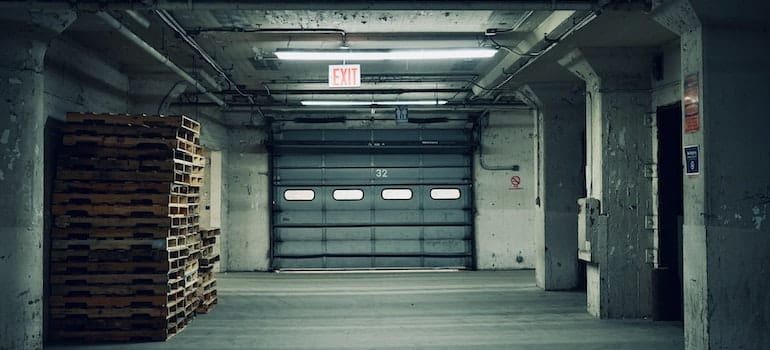Is living in a Glendale storage unit legal? That’s a question stirring interest among locals and moving companies Southern California has to offer. In recent times, escalating housing costs and dwindling availability have compelled many to consider alternative living arrangements. Despite this, it’s essential to understand that storage units, while economical, are typically meant to store items rather than provide residential space. Nevertheless, this in-depth look will guide individuals considering this option and shed light on the legal responsibilities and potential risks it may bring.
Understanding the legal framework of living in a Glendale storage unit
In Glendale, CA, a mix of local zoning laws, health codes, and lease agreements define the legal use of storage units. First and foremost, it is important to recognize that storage facilities, including climate controlled storage Glendale CA companies provide, are for storage purposes and not for habitation. Living in a storage unit can violate these laws and agreements. Additionally, fire safety regulations are crucial here. Storage units lack essential safety measures like fire escapes or smoke detectors. Hence, living in one could pose serious safety risks.
Another important consideration is privacy rights. Storage facility owners have the right to conduct inspections, which could compromise your privacy if you’re residing there. Finally, health codes are vital. These units aren’t equipped with basic sanitary facilities, which means they violate hygiene standards. Therefore, while the lower costs of storage units may seem appealing, the numerous legal and health obstacles make them unsuitable for residency.

Make sure to understand the legality of living in a storage unit.
Glendale’s legal perspective on residential use of storage units
In Glendale, the use of storage units for residential purposes faces tight regulations. City ordinances strictly prohibit this unconventional living arrangement. These regulations primarily protect the safety and well-being of citizens. Storage facilities lack essential features like sanitation, heating, ventilation, or fire safety measures, which a traditional home provides. People trying to convert these spaces into residences often find themselves facing legal repercussions.
Providers of moving services Glendale CA residents book strictly adhere to these local regulations. They also discourage the use of their storage services for residential purposes. Therefore, residents and newcomers to Glendale are strongly advised to seek out traditional housing options. To sum up, while creative housing solutions might be tempting due to increasing living costs, abiding by local laws will keep you safe and free from legal issues. Consequently, the move to a storage unit as a residence is neither a legal nor a practical solution.
Is living in a Glendale storage unit legal? No, but it’s also risky!
Residing in a storage unit is a far-fetched notion, considering the advancements in security systems by 2023. Residential movers Glendale CA provides, grant customers access to facilities that maintain robust security protocols, including surveillance cameras, key-coded gates, and on-site management. These tools ensure the safety of one’s belongings and detect unauthorized living within such spaces. Techniques like comparing entrance and exit gate code usage and searching for unusual signs such as footprints or abnormal bathroom supply consumption help spot potential violators.
While tutorials might suggest methods to source power, they fail to warn about the immediate detection of increased electricity usage by facility managers. Any violation of lease terms prohibiting dwelling in storage units can result in a civil offense. Persistent offenders ignoring warnings risk eviction and having their belongings expelled from the facility.

It is very risky to live in a unit.
The uncomfortable realities of inhabiting a storage unit
Living in a storage unit, under even the most favorable conditions, is bleak and far from ideal. If you choose to try this, anticipate a substantial compromise in comfort. Outdoor units bring extreme temperatures, chilling winters, and sweltering summers. Indoor units, though climate-controlled, come with the mental strain of claustrophobia and deprivation of natural light. If the facility lacks round-the-clock access, your daily routine will revolve around entry and exit timings. Remaining unnoticed within the unit during operational hours will require complete silence. Absence or limited access to bathrooms, running water, and electricity further aggravates the inconvenience, affecting everything from phone charging to severe hygiene-related issues. Another challenge is the lack of a permanent address, further complicating postal services, job hunting, and banking transactions. Thus, life in a storage unit is far from comfortable.
Alternative housing options
For those grappling with housing insecurity, a host of alternative options exists.
- Transitional housing programs, primarily designed for individuals emerging from homelessness, offer temporary, low-cost accommodation.
- Shelters can be a lifeline for many, providing both emergency and longer-term solutions. As a precautionary measure, housing counseling agencies offer resources and guidance to keep people in their homes.
- Affordable housing programs offered by federal and local governments help low-income individuals and families.
- The Glendale Homeless Services Program provides temporary shelter and case management for homeless individuals. Next, Glendale Housing Authority provides public housing and Section 8 vouchers, ensuring affordable living arrangements for eligible residents.
- The Community Services Department offers emergency rent and utility assistance to prevent evictions.
- Also, the Eviction Defense Network provides free legal consultation for those seeking legal aid.
- Finally, if you’re fleeing domestic violence, specialized resources like the National Domestic Violence Hotline can guide you to safe housing options.

Is living in a Glendale storage unit legal? Not only is it not, but it’s also not comfortable.
Refrain from storage-unit inhabitancy
Informed decisions about living arrangements demand a keen understanding of your options. One unconventional choice that some might contemplate is residing in a storage unit. Specifically, the question “Is living in a Glendale storage unit legal?” often surfaces. The answer to this is a resounding no, as the local and federal laws strictly prohibit individuals from residing in these. Instead, those in need of affordable living spaces are encouraged to explore viable, legal alternatives. Transitional homes, affordable apartments, and communal spaces are all options to give a second thought to. After all, to live legally is to live safely. And ultimately, it’s to live a balanced, productive life.






